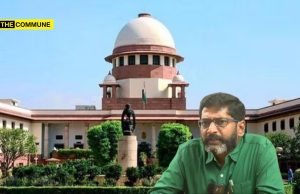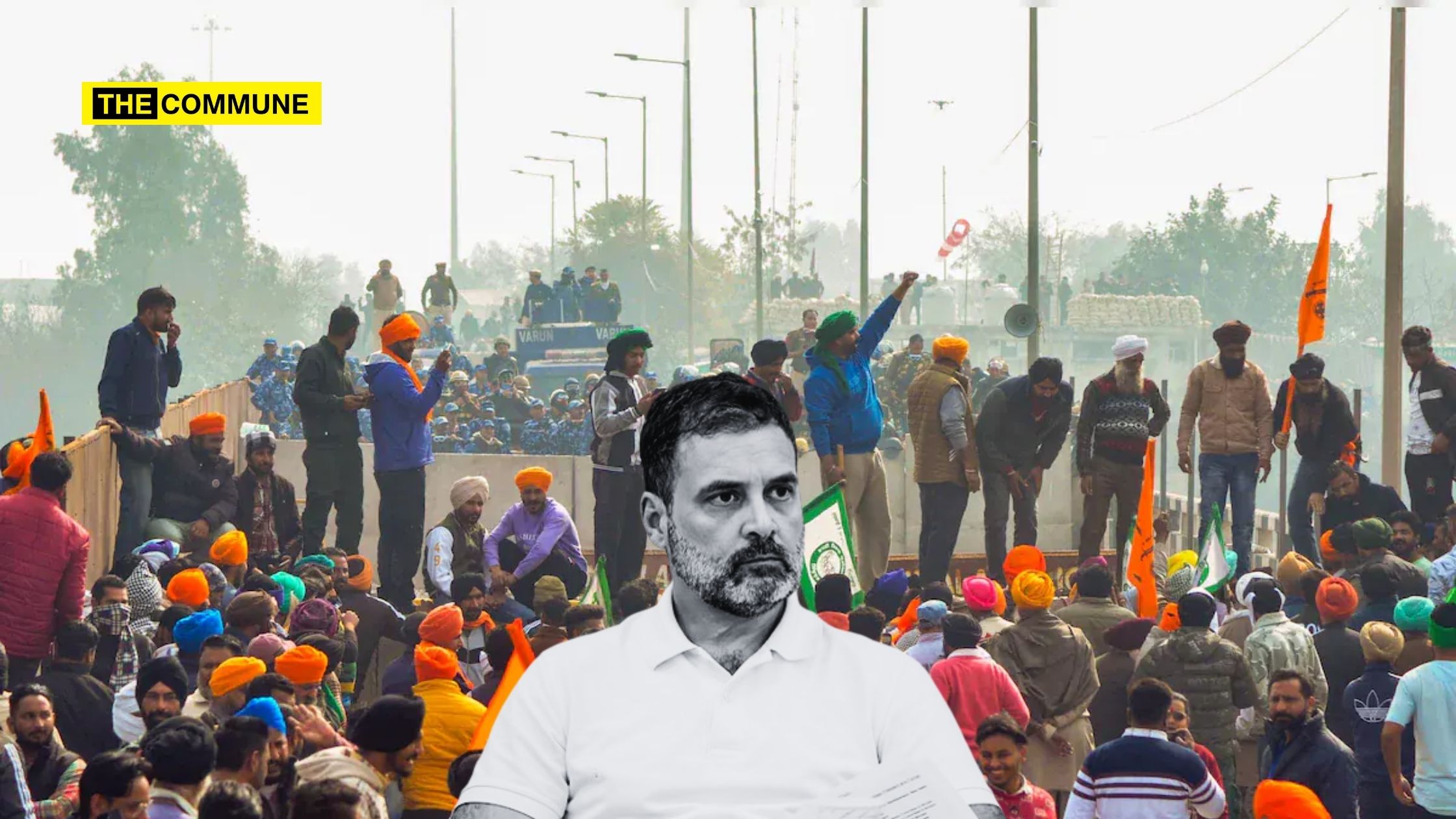
The Dilli Chalo March started by the farmers in Punjab commenced on 13 February 2024 . In contrast to previous demonstrations that primarily opposed three agricultural laws, the current protest, labelled under the banner of “Dilli Chalo,” incorporates a broader spectrum of demands.
These include securing legal assurances for the Minimum Support Price (MSP) for all crops, implementing the recommendations of the Swaminathan Commission, providing comprehensive debt relief for farmers, establishing pensions for farmers and withdrawal of cases against demonstrators involved in the 2021 protests. The leadership of the Farmers’ Protest 2.0 is held by the Samyukt Kisan Morcha and Kisan Mazdoor Morcha.
Farmers are also advocating for penalties against those engaged in the sale of counterfeit seeds, pesticides, and fertilizers. They are pushing for an increase in the number of work days in the rural employment guarantee scheme to 200 days. Additionally, the protesters are calling for India to withdraw from the World Trade Organization (WTO) and nullify all existing free trade agreements.
The agricultural community is requesting guaranteed floor prices, known as Minimum Support Price (MSP) for over 20 crops annually, to enable them to sell the majority of their produce at government-controlled wholesale markets or mandis. They are also urging the government to fulfill its commitment to doubling farmers’ income. They argue that cultivation costs have surged in recent years while incomes have stagnated, making farming economically unsustainable. With the new wheat crop ready for harvest in about a month, the farmers are well-prepared for sustained protests, reinforcing tent camps along highways while tending to their crops.
Union Minister for Agriculture Arjun Munda has expressed the Centre’s willingness to engage in further discussions with protesting farmers, provided a conducive environment is ensured. The protests, originating mainly from Punjab, Haryana, and parts of Uttar Pradesh, have entered their second day on 14 February 2024, with demands including legislation guaranteeing a minimum support price for agricultural produce.
BJP national spokesperson and MP Sudhanshu Trivedi stated that the government cannot enact new legislation at the moment as the Lok Sabha session has concluded. He highlighted the government’s sensitivity to farmers’ issues and noted that many of their demands have already been addressed. Trivedi deemed the demand for a new law at this juncture as technically unfeasible, given the adjournment of the Lok Sabha session, and emphasized the limitations on legislative action at this time.
On 7 June 2023, the Union Cabinet approved an increase in the Minimum Support Price (MSP) for Kharif crops for the marketing season 2023-24. Union Minister Piyush Goyal, addressing a press conference, stated that this decision aims to guarantee profitable prices for farmers and promote crop diversification. The overall Kharif crop estimate for the current year is 330 million tonnes, a notable increase from the 285 million tonnes recorded in 2018-19.

The MSP for the common grade variety of paddy has been raised by Rs 143 to Rs 2,183 per quintal for the 2023-24 crop year, up from Rs 2,040 in the previous year. The most significant increase in MSP is observed in moong, with a 10.4% rise to Rs 8,558 per quintal for the 2023-24 crop year, compared to Rs 7,755 per quintal in the previous year. Other pulses see an increase in MSP ranging from 6-7%. In cotton crops, the MSP hike ranges from 8.9% to 10%, linked to specific grades.
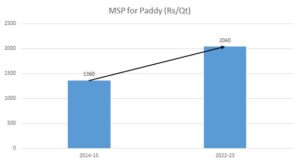
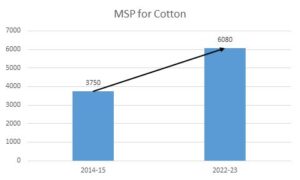
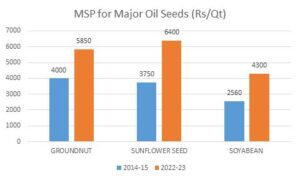

Over the past four years, there has been a 25% increase in pulses production and a 30% increase in oilseed production. The decision to raise MSP for Kharif crops aligns with the Union Budget 2018-19 announcement, aiming to set the MSP at a minimum of 1.5 times the All-India weighted average Cost of Production, ensuring reasonably fair remuneration for farmers. The anticipated margin to farmers over their cost of production is projected to be highest for bajra (82%), followed by tur (58%), soybean (52%), and urad (51%). For other crops, the margin to farmers over their cost of production is estimated to be at least 50%.
The government has been actively promoting the cultivation of crops beyond cereals, such as pulses, oilseeds, and Nutri-cereals, by offering an increased Minimum Support Price (MSP) for these crops. Moreover, various schemes and initiatives, including the Rashtriya Krishi Vikas Yojana (RKVY) and the National Food Security Mission (NFSM), have been launched to incentivize farmers to diversify their crop choices.
The Third Advance Estimates for 2022-23, the total foodgrain production in the country is projected to reach a record 330.5 million tonnes. This represents a substantial increase of 14.9 million tonnes compared to the previous year, 2021-22, marking the highest growth in the last five years.
But Reuters reported that state agencies only purchase rice and wheat at MSP, benefiting merely 7% of farmers who cultivate these crops. And suggested remedy to ease tensions, the government might consider offering a bonus above the minimum support price for 2024 as a concession to the protesting farmers.
Rahul Gandhi who is on his Bharat Jodo Nyay Yatra has indicated that he will join the protest. With regard to the protests, in what seems as if he is instigating the crowds, he wrote on his official X handle, “Our legal guarantee on MSP will bring 3 big changes in the lives of farmers. By getting the right price for the crop, the farmer will get rid of the problem of debt. No farmer will be forced to commit suicide. Farming will be a profitable business and farmers will become prosperous. And a prosperous farmer will change the destiny of the country.#KisaanNYAYGuarantee”
हमारी MSP पर कानूनी गारंटी किसानों के जीवन में 3 बड़े बदलाव लाएगी।
– फसल के सही दाम मिलने से किसान कर्ज़ की मुसीबत से छुटकारा पा जाएगा।
– कोई भी किसान आत्महत्या को मजबूर नहीं होगा।
– खेती मुनाफे का व्यवसाय होगा और किसान समृद्ध बनेगा।
और समृद्ध किसान देश की तक़दीर बदल देगा।… pic.twitter.com/cKBa1pWKiL
— Rahul Gandhi (@RahulGandhi) February 13, 2024
In another post, he also mentioned “Modi, who ‘cultivates lies’ day and night, has only cheated the farmers in the last 10 years. By promising double the income, Modi also made the farmers yearn for MSP. Due to inflation, farmers’ debts increased by 60% due to not getting fair prices for their crops – as a result, about 30 farmers lost their lives every day. The one whose USP is deception, can only do politics with the farmers in the name of MSP, not justice. Those who put obstacles in the path of farmers are not worthy of trust, uproot them from Delhi, Congress will provide justice and profit to the farmers.”
दिन रात ‘झूठ की खेती’ करने वाले मोदी ने 10 वर्षों में किसानों को सिर्फ ठगा है।
दो गुनी आमदनी का वादा कर मोदी ने अन्नदाताओं को MSP के लिए भी तरसा डाला।
महंगाई तले दबे किसानों को फसलों का सही दाम न मिलने के कारण उनके कर्ज़े 60% बढ़ गए – नतीजा, लगभग 30 किसानों ने रोज़ अपनी जान…
— Rahul Gandhi (@RahulGandhi) February 11, 2024
On 13 February 2024, he wrote, “Farmer brothers, today is a historic day! Congress has decided to give legal guarantee of MSP to every farmer on crops as per Swaminathan Commission. This step will change the lives of 15 crore farmer families by ensuring their prosperity. This is the first guarantee of Congress on the path of justice.”, thus making a promise to the farmers.
किसान भाइयों आज ऐतिहासिक दिन है!
कांग्रेस ने हर किसान को फसल पर स्वामीनाथन कमीशन के अनुसार MSP की कानूनी गारंटी देने का फैसला लिया है।
यह कदम 15 करोड़ किसान परिवारों की समृद्धि सुनिश्चित कर उनका जीवन बदल देगा।
न्याय के पथ पर यह कांग्रेस की पहली गारंटी है।#KisaanNYAYGuarantee
— Rahul Gandhi (@RahulGandhi) February 13, 2024
He has been writing multiple posts about the protests and utilizing the opportunity to target Prime Minister Modi. Here’s another post he wrote. It said, “Modi, his propaganda machinery and friendly media are the enemies of the poor and farmers. When it comes to the interests of those who built India, ‘government experts’ start worrying about the budget, but it is not about the budget, it is about the intentions. Silent on loans and tax waivers worth lakhs of crores of industrialist friends, silent on water, forests and land being gifted to them, silent on PSUs being sold at throwaway prices. But on the issue of guarantee of MSP to farmers, respect to householders and pension to firefighters – questions only questions. History is witness to the fact that Congress has never been afraid of taking big and revolutionary steps. Be it the Green Revolution, bank nationalization, creation of public sectors or economic liberalization, our decisions have always laid the foundation for the future of the country. Today, providing MSP to every farmer is the need of the hour and this decision of Congress will also prove to be a milestone. This will change the lives of crores of farmer families of the country including the rural economy. We take decisions not for politics, but for the country.”
मोदी, उनका प्रचारतंत्र और मित्र मीडिया गरीबों और किसानों के दुश्मन हैं।
जब बात भारत बनाने वालों के हित की आती है तो ‘सरकारी एक्सपर्ट्स’ को बजट की चिंता सताने लगती है, पर बात बजट की नहीं, नीयत की है।
उद्योगपति मित्रों के लाखों करोड़ों के ऋण और टैक्स माफी पर चुप, उन्हें जल, जंगल…
— Rahul Gandhi (@RahulGandhi) February 14, 2024
But Sarwan Singh Pandher, the General Secretary of the Punjab Kisan Mazdoor Sangharsh Committee, stated during a press conference, “Congress party does not support us, we consider Congress equally responsible as much as the BJP. These laws were brought by Congress itself. We are not in favor of anyone, we raise the voice of farmers.”
Welfare Schemes For Farmers In The Modi Regime
During this crucial period, it is essential to recognize the various farmer welfare schemes implemented by the Modi-led Government aimed at empowering and uplifting the agriculture sector. Under Prime Minister Modi’s guidance, these initiatives have sought to enhance the lives of farmers by providing financial security, alleviating their financial burdens, fostering skill development, ensuring market access, and promoting sustainable agricultural practices.
Paramparagat Krishi Vikas Yojana (PKVY): Launched in 2015, PKVY promotes organic farming practices and the adoption of traditional methods, encouraging farmers to pursue organic farming certification and contributing to sustainable agriculture, improved soil fertility, and healthier farming practices.
Pradhan Mantri Kaushal Vikas Yojana (PMKVY): Launched in 2015, PMKVY aims to provide skill training to farmers and rural youth, empowering over 40 million individuals with essential agricultural skills, improving productivity, and generating employment opportunities.
Pradhan Mantri Krishi Sinchai Yojana (PMKSY): Introduced in 2015, PMKSY aims to enhance water efficiency and promote sustainable irrigation practices, positively impacting agricultural productivity and water conservation across the nation.
Soil Health Card Scheme: Introduced in 2015, this scheme provides personalized soil health reports to farmers, offering insights on soil nutrients and recommendations for balanced fertilization. By promoting proper soil management practices, it optimizes yields, reduces input costs, and enhances soil health across agricultural lands.
Pradhan Mantri Fasal Bima Yojana (PMFBY): Initiated in 2016, PMFBY offers comprehensive crop insurance coverage to farmers at affordable premiums, ensuring timely compensation for crop losses due to natural calamities, pests, or diseases. This scheme has brought financial security and stability to millions of farmers, safeguarding their livelihoods.
e-NAM (National Agriculture Market): Launched in 2016, e-NAM is an electronic trading portal that integrates agricultural markets throughout India, revolutionizing agricultural trade by enabling farmers to sell their produce online, discover competitive prices, and connect with buyers across the nation.
PM Krishi Sampada Yojana: Launched in 2017, this scheme focuses on modernizing the food processing sector and creating robust infrastructure for the agro-industry. It aims to reduce post-harvest losses, improve processing capabilities, and promote value addition, generating employment opportunities and enhancing farmers’ income.
Pradhan Mantri Kisan Samman Nidhi (PM-KISAN): Launched in 2019, PM-KISAN is an income support scheme designed to assist small and marginal farmers. Eligible farmers receive direct financial assistance of Rs 6,000 annually in three equal installments, significantly boosting their income and improving their quality of life, benefiting over 120 million farmers.
Pradhan Mantri Atmanirbhar Bharat Abhiyan (ABHA): Initiated in 2020, ABHA focuses on making India self-reliant in agriculture and food production through components such as crop diversification, productivity enhancement, and value addition, thereby increasing farmers’ income and fostering sustainable agricultural practices.
Subscribe to our channels on Telegram, WhatsApp, and Instagram and get the best stories of the day delivered to you personally.




